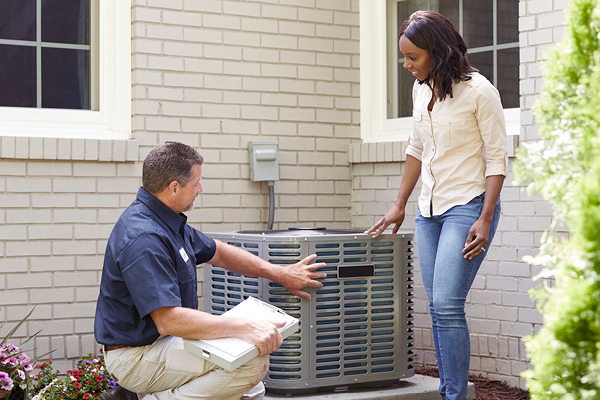People living in St. Cloud and elsewhere tend to assume it is only lawnmowers and automobiles that require tune-ups. In reality, your St. Cloud Air Conditioning System requires a tune-up just as much as your car and lawnmower. However, few local homeowners opt for an air conditioner tune-up as they assume it is unnecessary and a waste of money. If your home air conditioning system has not been tuned-up in the past year or if you are uncertain of the system’s functionality or efficiency, it is time for an tune-up. Below, we explain why it makes sense to spend the little bit of money necessary for an annual air conditioner tune-up.
The Merits of a Professional Air Conditioner Tune-up: Enhance Safety and Comfort
One of the best reasons to have your home air conditioning system tuned-up at least once per year is to enhance your home’s comfort. Air conditioning system efficiency gradually declines. It is only a matter of time until the system’s components eventually wear and tear. Such wear occurs with every type of machine, be it a lawnmower, an automobile or an air conditioner. Fail to have your HVAC system tuned-up and you run the risk of these worn parts being unable to adequately cool your home in a cost-efficient manner.
Aside from enhancing the comfort of your St. Cloud home, an annual tune-up of your air conditioning system will improve your family’s safety. Though few know it, air conditioners really can pose a threat to your physical well-being. Certain air conditioner components have the potential to prove quite harmful. Do not attempt to perform a tune-up or repair on your own. The only thing you can do to enhance your HVAC system’s functionality is clean/change the air filter and keep objects away from the system’s exterior.
If you attempt a DIY (do it yourself) air conditioner tune-up, you might be exposed to refrigerant. This chemical is necessary for the cooling process yet if it leaks, it might injure you or a loved one. The last thing you need is for a wayward youngster in your house to venture on over to the air conditioning system and touch or eat leaking refrigerant. This is precisely why it is prudent to rely on the proven St. Cloud air conditioning aficionados for your yearly tune-up.
Tune-ups Will Save You Money
Do not be intimidated by the cost of a yearly air conditioner tune-up. The components of these systems will gradually decline in functionality unless the machine is tuned-up at least once per year. Fail to pay the small fee for this yearly tune-up and you will be stuck with expensive repairs that seemingly pop up out of the blue. The costs of these repairs or even a potential replacement will prove that much more costly than the little bit of money necessary for an annual tune-up. Let our St. Cloud Air Conditioning Company perform an annual tune-up of your system and it really will prove more efficient, reliable and affordable to operate.
Air Conditioner Tune-ups Extend the System’s Useful Life
When properly maintained and tuned-up, air conditioners have the potential to last upwards of 15 years. In fact, some St. Cloud residents will testify yearly tune-ups and maintenance have helped their air conditioners last upwards of two full decades. Even if your home’s air conditioning system is made by a lesser-known manufacturer lacking a sterling reputation for durability, annual tune-ups will prolong its useful life well beyond that of other systems made by the exact same company that are neglected. Furthermore, the failure to maintain your air conditioning system has the potential to void the manufacturer warranty.
Tune-ups Ensure You Enjoy a Truly Efficient Cooling System
The gradual wear and tear of your home air conditioner’s parts will strain its ability to cool your home in an efficient manner. In particular, the lack of maintenance will put a strain on the blower motor. The result will be escalated energy bills due to the fact hat the air conditioner will attempt to overcome this unnecessary strain. Alternatively, St. Cloud homeowners who spend for annual air conditioner maintenance retain upwards of 95% of the system efficiency rating across its full service life.




